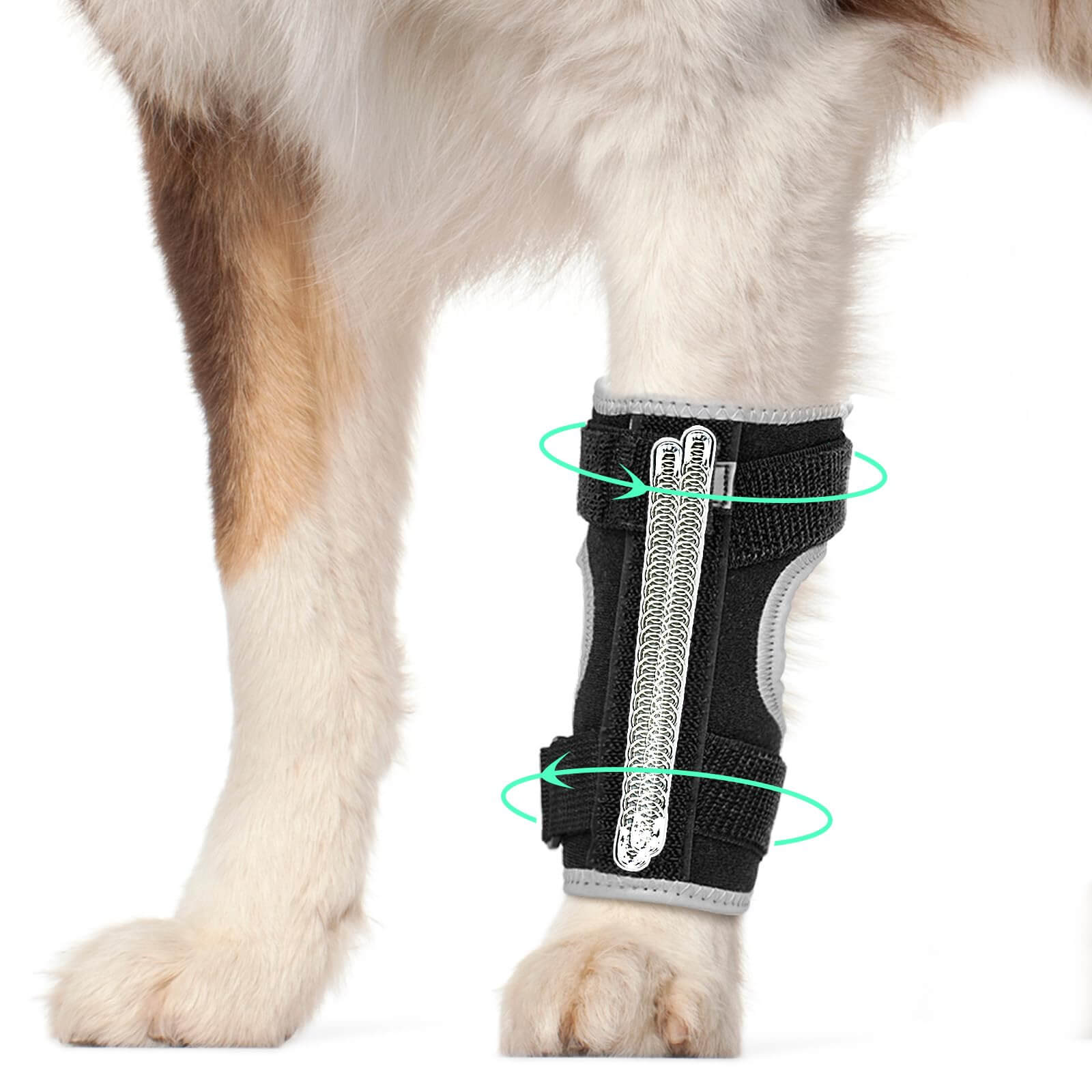Just like humans, dogs can inherit a variety of genetic disorders—some minor, others potentially life-altering. These inherited conditions tend to be more prevalent in purebred dogs due to limited genetic diversity within breed lines.
In this article, we'll explore the most common genetic disorders in dogs, how they're inherited, and which breeds are most at risk. Whether you're a dog lover, owner, or breeder, understanding these conditions can help you take better care of your pup.
How Do Dogs Inherit Genetic Disorders?
Genetic diseases can be passed down in two main ways:
Dominant inheritance: Only one parent needs to carry the gene for the puppy to be affected.
Recessive inheritance: Both parents must carry the gene for the condition to appear in their offspring.
Some disorders can hide in the dog’s genetic makeup for generations and only emerge when two carriers are bred. That's why genetic testing—especially for purebreds—is essential.
10 Genetic Disorders in Dogs
1. Hip and Elbow Dysplasia

These skeletal disorders occur when joints don’t fit properly, leading to painful friction and joint damage. They’re most common in large breeds like:
- Mastiffs
- Bernese Mountain Dogs
- Great Danes
- Rottweilers
Management options include: joint supplements (glucosamine, chondroitin), pain medication, physical therapy, laser treatments, and even hip replacement surgery.
2. Cranial Cruciate Ligament (CCL) Rupture
This is the canine equivalent of an ACL tear. Dogs with this condition may limp or avoid bearing weight on the affected leg. It often affects:
- Newfoundlands
- Labrador Retrievers
While genetics play a role, injury, obesity, and aging also contribute. Surgery is often required, especially in dogs over 30 lbs.
3. Brachycephalic Obstructive Airway Syndrome (BOAS)
Short-nosed breeds like:
- Pugs
- Shih Tzus
- Boston Terriers
- French Bulldogs

often suffer from breathing difficulties, snoring, overheating, and even dental and eye issues. Their cute “squished” faces come at a cost—these breeds often need extra care and monitoring.
4. Degenerative Myelopathy (DM)

This progressive neurological disorder affects senior dogs, especially:
- German Shepherds
- Welsh Corgis
- Boxers
Dogs slowly lose coordination in their hind limbs. Although it's not painful, it's emotionally difficult for owners. There's no cure, and mobility aids like carts or harnesses are often necessary.
5. Hereditary Heart Diseases
Heart disorders are common across all breeds, but some are particularly at risk:
- Dilated Cardiomyopathy (DCM) – Doberman Pinschers, Irish Setters
- Arrhythmogenic Right Ventricular Cardiomyopathy (ARVC) – Boxers, Bulldogs
- Myxomatous Mitral Valve Disease – Dachshunds, Cavalier King Charles Spaniels

Symptoms include coughing, fatigue, poor appetite, or sudden collapse. Treatment usually involves medication and lifestyle changes.
6. Chondrodysplasia
Seen in short-legged breeds like Basset Hounds, this inherited bone condition is linked to a mutation in the ITGA10 gene. It affects cartilage and bone formation.
Since it’s a recessive condition, carriers often show no symptoms, making genetic testing the only way to detect it before breeding.
7. Urinary Bladder Stones

- Certain breeds, like:
- Miniature Schnauzers
- Bichon Frise
- Dalmatians
Are genetically predisposed to developing bladder stones. Causes may include diet, infection, or inherited metabolism issues. Treatment can involve surgery, special diets, or non-invasive techniques.
8. Inherited Epilepsy
Epileptic seizures can begin in puppies or adult dogs, often with no warning. Commonly affected breeds include:
- Beagles
- German Shepherds
- Dachshunds
Symptoms range from twitching and staring to full-body seizures. Since there’s no definitive genetic test, diagnosis involves ruling out other causes. Treatment varies widely by dog and can involve lifelong medication.
9. Allergic Skin Disease (Atopy)

Inherited allergies can cause relentless itching, licking, and skin infections. Triggered by food or environmental allergens, this condition is seen in breeds like:
- Dalmatians
- West Highland White Terriers
There's no DNA test, but symptoms can be managed through diet, medication, and allergen avoidance.
10. Progressive Retinal Atrophy (PRA)
This group of genetic eye disorders affects the retina and can eventually cause blindness. Breeds at higher risk include:
- Labrador Retrievers
- American Eskimo Dogs
- Collies
- Dachshunds
- Corgis
There's no cure, but early genetic testing is available for some forms of PRA.
Other Inherited Conditions to Be Aware Of:
Myotonia Congenita (“fainting goats” syndrome) – seen in Jack Russell Terriers and Australian Cattle Dogs
Hypothyroidism – affects breeds like English Setters and Bull Terriers
Gastric Dilatation-Volvulus (Bloat) – though not strictly inherited, dogs with a certain chest shape (like Bloodhounds and Standard Poodles) are more prone
Final Thoughts: Should Genetic Disorders Deter You?

Not at all.
While some conditions can’t be prevented, many can be managed or even avoided with responsible breeding and early testing. Partnering with ethical breeders and staying informed about your dog’s health risks can make all the difference.
Remember: genes load the gun, but environment pulls the trigger. Nutrition, exercise, and preventive care are just as important.





